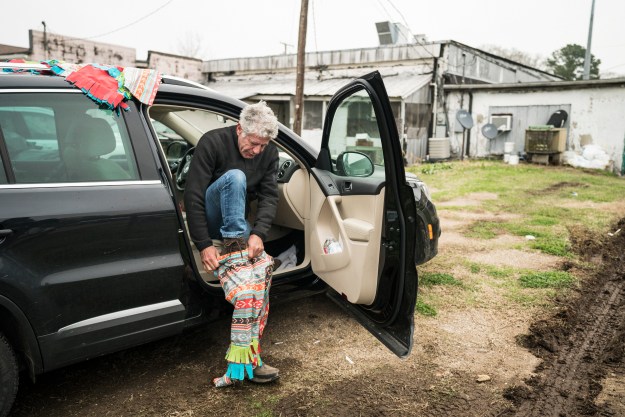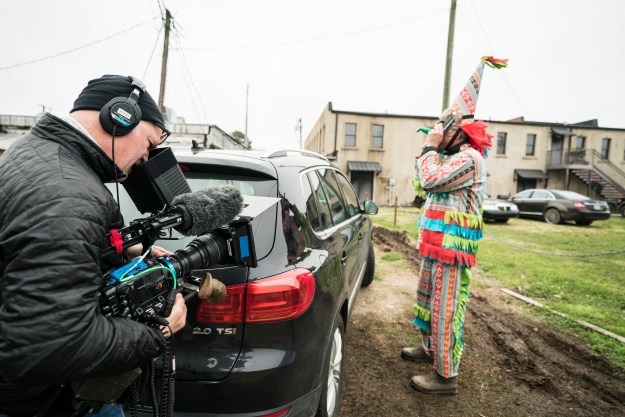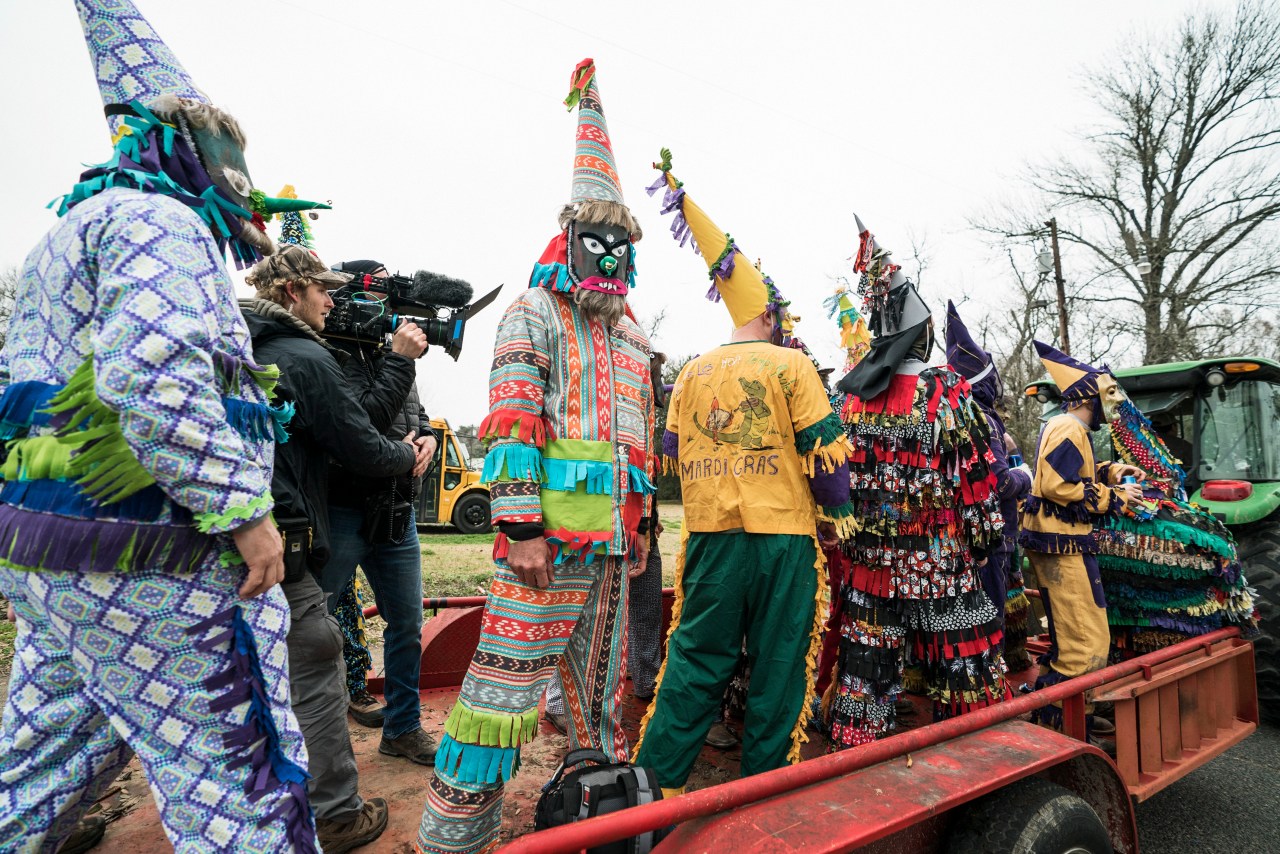Synopsis: Anthony Bourdain visits Cajun Country, a region in southern Louisiana that he says is “much loved but largely misunderstood.” He discovers that it is a “magnificently weird place” where locals continue to do things their own way. He learns the subtle differences between the Cajun and Creole communities and, despite being someone who loathes “anything festive,” manages to have fun while participating in Cajun Mardi Gras.
“Closer to the ancient French tradition, it is vaguely more dangerous, downright medieval.”
On the wild festivities of Cajun Mardi Gras:
- “Ordinarily, I loathe the idea of Mardi Gras. Any kind of group celebration, anything festive involving dancing fills me with self-conscious dread. Thousands of happy drunks crowding into the French Quarter, for instance, is not for me—but Cajun Mardi Gras is another thing entirely.”
- “And the beer keeps on coming. I wonder if this is the kind of promotion major brands had in mind.”
- “Feeling pretty good about the world right now, considering. Minimal hangover, minimal Mardi Gras–related damages, and few bruises.”



On the distinctions between Creole and Cajun:
- “What is Creole and what is Cajun are increasingly difficult distinctions in this day of commercialization and appropriation.”
- “Interestingly—and I almost wanted to dig up John Wayne just to tell him this—Creoles are believed to be the first American cowboys, herding cattle in the plains and bayous of Louisiana long before white dudes in assless chaps started showing up in the West.”
“In Louisiana, [Creole] is usually used to refer to members of the African-American or mixed-race French-speaking community.”
Guest weigh in:
- Toby Rodriguez (owner of Lâche Pas Boucherie & Cuisine): “The depiction [of our culture] stops at swamp scenes and alligators, and it’s so much more than that—not just because of the food, not just because of the music, but because of the way of life.”
- Dave Lemelle (Creole cowboy, founder of the Step-n-Strut Riders): “When they say ‘Louisiana,’ they think of Cajun. Cajun is a big part of Louisiana, but Creole is a big part of Louisiana too.”
- Herman Fuselier: “[Creole] still has hundreds of definitions, but for us it’s descendants of slaves and freed people of color. It deals with the food and the music. The Catholic Church is a big part of it too.”